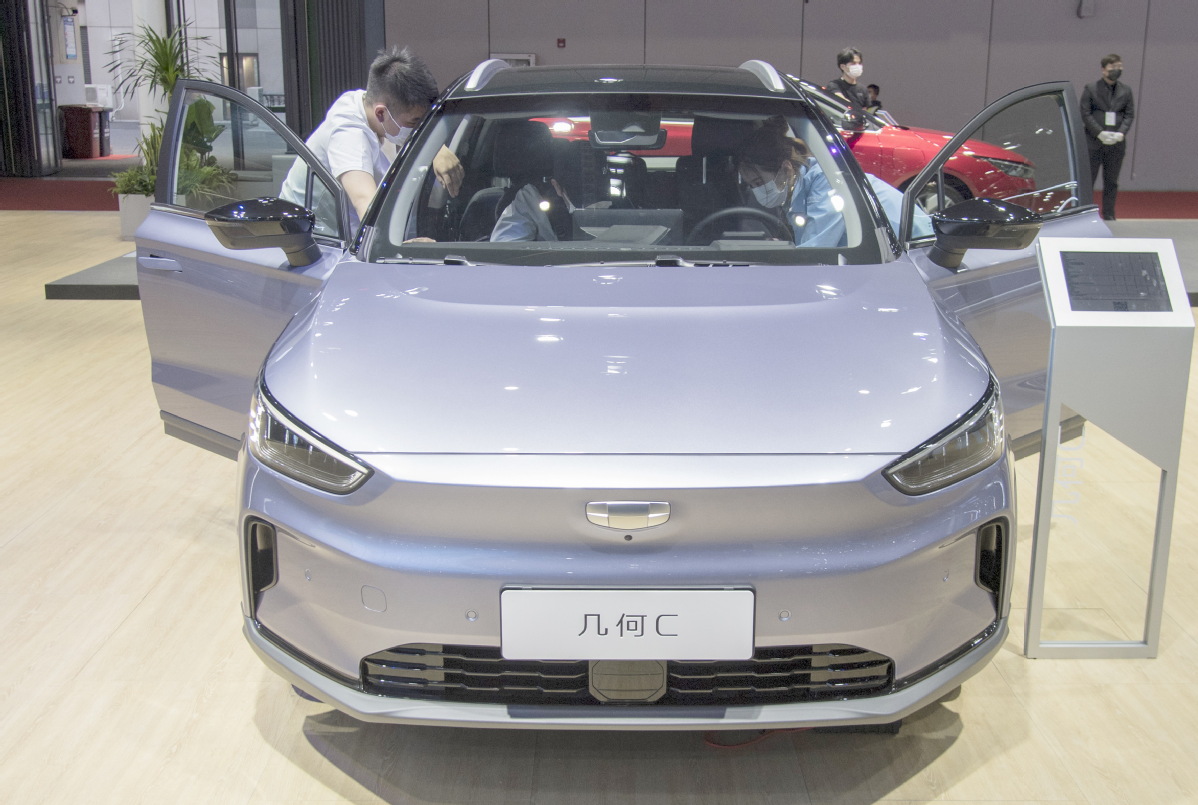Geely Auto revving up for chip autonomy

Geely Auto is scheduled to produce China's first automotive grade seven-nanometer system-on-chip in 2022, as the nation's largest private carmaker accelerates its efforts to produce autonomous vehicles.
The chip, called SE1000, is to be used to offer smart onboard features, said Geely CEO Gan Jiayue on Sunday.
The intelligent car cockpit control chip is designed by Siengine, a Hubei province-based joint venture established by ECARX.
Gan said it will roll out two five-nanometer high-performance chips from 2024 to 2025. One of them, with a computing capability of 256 tera operations per second, will be used for Geely's autonomous vehicles.
"Geely is to commercialize Level 4 autonomous driving by 2025 and have the complete know-how of Level 5 autonomous driving," Gan said.
The Society of Automotive Engineers International defines six levels of automation from Level 0 to Level 5.
It said Level 4 means the vehicle can operate itself in most of circumstances while L5, also known as full driving automation, requires no human participation at all.
Cui Dongshu, secretary-general of the China Passenger Car Association, said it makes sense that carmakers develop chips because smart vehicles with autonomous features are more reliant on chips than current vehicles, whose production has already been crippled by global chip shortages.
Ondrej Burkacky, a McKinsey partner, estimates that chips used to enable autonomous driving functions are expected to generate $29 billion in revenue by 2030, up from $11 billion in 2019.
Chips and autonomous driving are one of nine goals that Geely announced on Sunday for 2025 to stay competitive in the fast-changing automotive industry.
Other goals include earmarking 150 billion yuan ($23.43 billion) for investment in five years and launching 25 electric and plug-in hybrid models by 2025.
The continuous investment and new models are estimated to propel its annual sales to 3.65 million vehicles by 2025, of which 600,000 will be sold overseas, said the carmaker.
Geely sold 921,796 vehicles in the first three quarters, up 5 percent annually or around 60 percent of its sales goal of 1.53 million this year.
Gan said Geely's sales have been affected by the COVID-19 pandemic and the sweeping chip shortages, saying that it had over 100,000 vehicles on its order book by the end of September.
Carmakers have been urging chipmakers to scale up capacity while finding other ways such as devising their own chips and making investments in startup chipmakers.
South Korean carmaker Hyundai said last month that it would like to develop chips for itself.
"This will allow us to be a little bit less dependent in a potential situation like this. This takes a lot of investment and time, but this is something we're working on," said Jose Munoz, the company's global chief operating officer.
SAIC Motor, China's largest carmaker by sales, and Great Wall Motors have become investors in Beijing-based startup Horizon Robotics.
In July, Horizon unveiled its latest automotive-grade processor-Journey 5-designed for L4 autonomous driving, with up to 128 tera operations per second of AI computing power.

